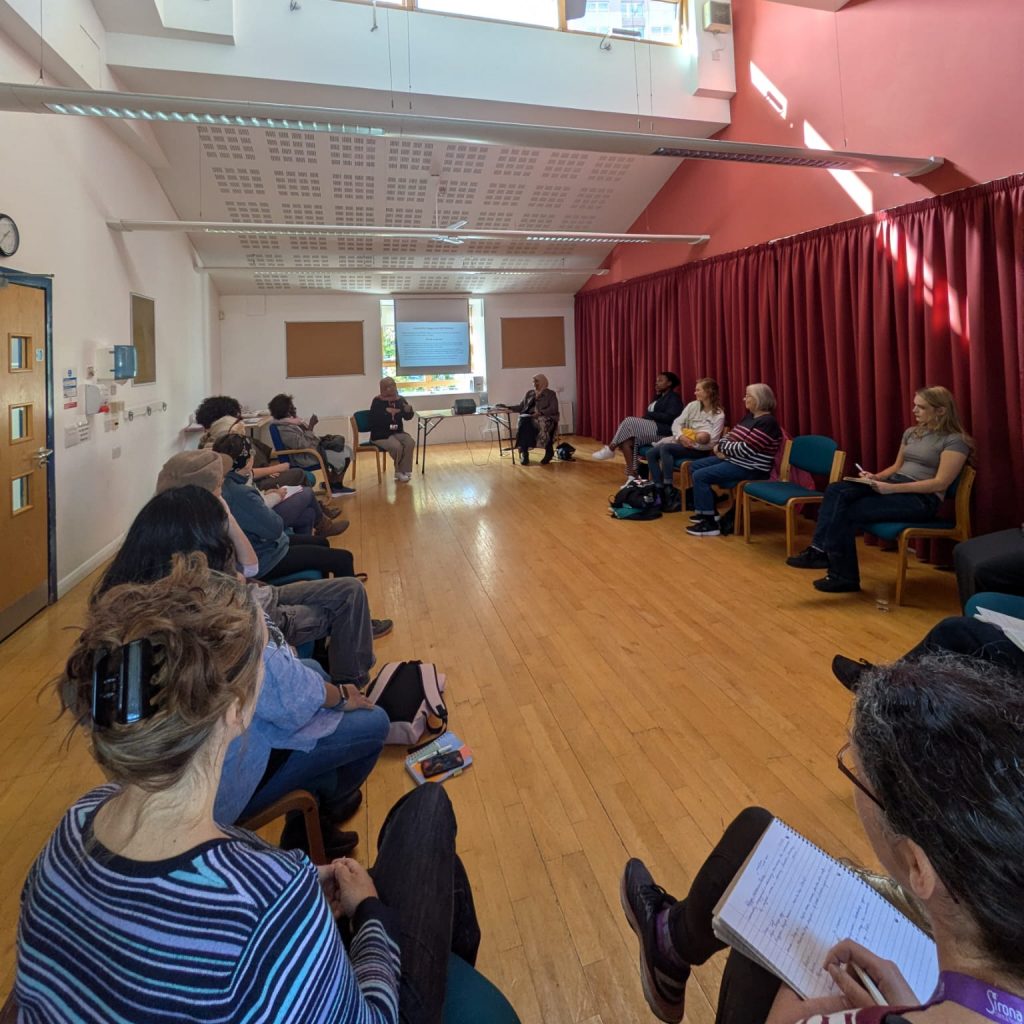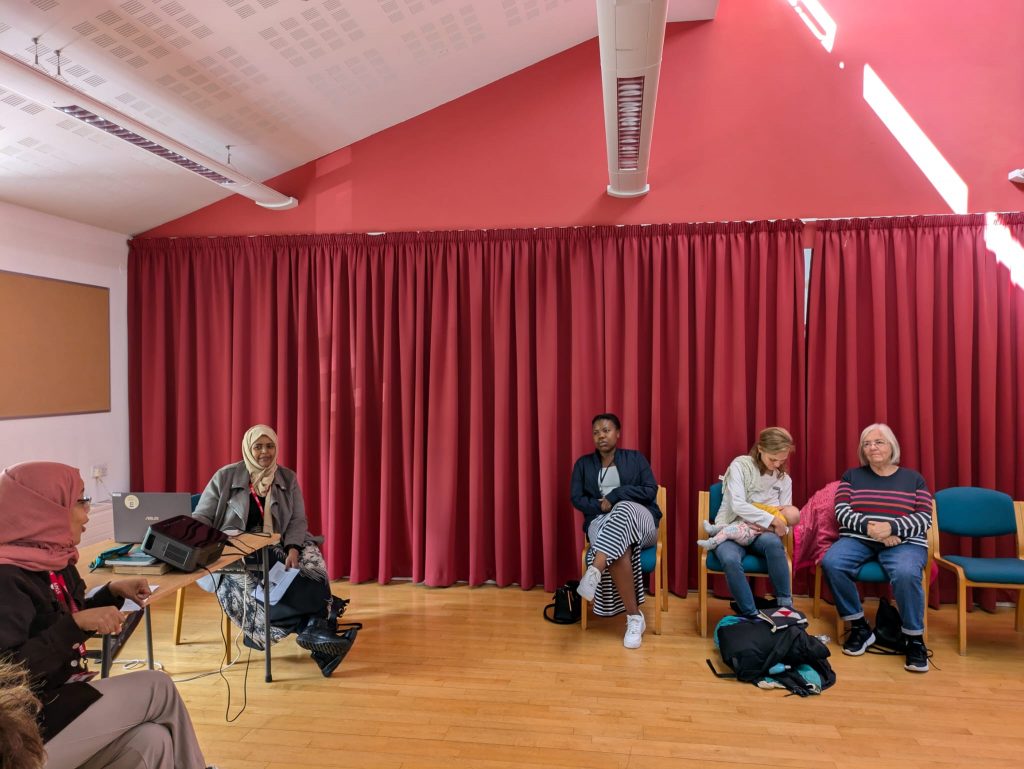

by Isabel Law, Bristol Women’s Voice Volunteer
Reclaiming the narratives of migrant women in Bristol
The first of our Migrant Women series, was opened by a powerful talk by Negat Hussein and Layla Ismail from Refugee Women of Bristol (RWoB).
Alongside Black History Month’s theme of Reclaiming Narratives, the need to celebrate and elevate such stories of migrant women is increasingly being recognised.
As the only multi-faith and multi-ethnic organisation targeting the needs of migrant women in Bristol, RWoB works to achieve this exactly. Their values of inclusion, empowerment, transparency and nurture govern their mission—ultimately providing aid “by and for refugees and asylum seekers.”
Education and Wellbeing Support
Recognising the varying experiences of migrant women, Negat explained the variety of services the charity provides. For example: the Mend the Gap initiative works directly with victims of domestic abuse—allowing women to connect with those in similar situations, alongside 1-on-1 emotional support, with the help of partners like Changing 4 Bristol and Mind.
Childcare services also allow mothers to fully connect with other volunteers and prioritise time for themselves—making the drop-in sessions inclusive to all. Negat demonstrated how one-on-one reading services not only advance education, but also encourage communication, which is essential to those experiencing isolation.
The Impact of COVID-19
Layla specifically mentioned how valuable such resources were during lockdown for migrant women and asylum seekers—as community engagement became even more essential in this period of isolation. The charity was able to offer bilingual volunteers, translating governmental updates and notices on how to stay safe. As well as the offer of vaccination jabs to those who worried about giving their personal information to health services. Such efforts strengthened migrant communities in Bristol and encouraged inclusion—both central aspects to RWoB’s mission.
FGM and The Bristol Community Rose Clinic
An important topic that Negat and Layla focused on was the practice of Female Genital Mutilation (FGM) and the charity’s efforts to challenge such cultural practices. They discussed the importance of the charity’s safe space, where people felt open to navigate the difficulty of questioning aspects of one’s culture and connect with others who shared this view.
However, an essential part to creating awareness for FGM in the UK was moving this conversation beyond the refugee community. Layla spoke specifically of the training of GP and healthcare professionals, as well as the police—aiming to approach these cases with the sensitivity they required. Annual marches from Stapleton Road to Trinity Hall extended this awareness to the public and ensured the voices of migrant women were acknowledged within the city they called home.
Yet, migrant women’s voices were still being neglected within healthcare services—forced to wait 8-10 months for appointments that required immediate attention. This prompted the creation of The Bristol Community Rose Clinic, following five years of advocacy and submission of cases to the council. This service provides migrant women with an all-female team, trained in the complexities of FGM and practices strict patient confidentiality. Negat emphasised how their added well-being support tailors health services to the diverse experiences migrant woman face, encouraging more women to come forward.
The work of RWoB is a testament to the power of ‘reclaiming narratives’, and Layla and Negat’s activism has proven the value of celebrating these migrant narratives.
Find out more about Refugee Women of Bristol: https://www.refugeewomenofbristol.org.uk/
Find our next Migrant Women Talks here.

